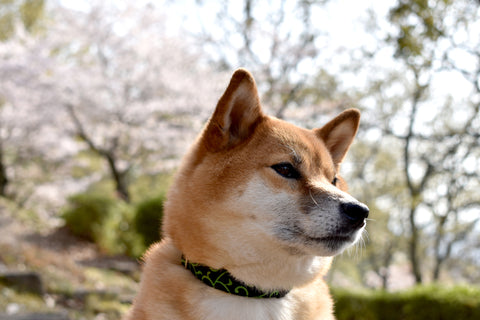Discovering the Shiba Inu: The Heart and Soul of Japanese Dog Breeds
Thinking of adopting a Japanese dog? Here's your chance to learn all you need to know about the most popular dog whose breed originated in Japan, the Shiba Inu. Formerly hunting dogs, these loyal companions have warmed their way into the hearts of home owners around the world.
Introduction to Japanese Dogs: A Cultural Heritage
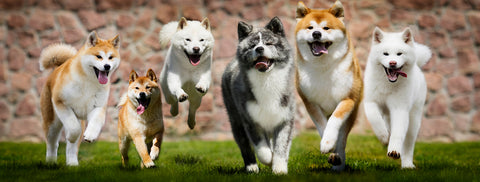
In modern Japanese households, dogs and other pets are considered a part of the family. They are treated as little children and are hardly required to perform any duties or tasks. However, that wasn’t always the case.
Many centuries ago, when the Jomon people migrated to Japan, they brought dogs with them. These animals were mostly used as hunting dogs. Dog breeds like the Shikoku would assist their owners by hunting down wild boar, and deer. They would also warn their owners when dangerous animals were nearby.
When the Yayoi people migrated to Japan from nearby Korean regions, they brought their own breed of dogs. The crossbreeding of dogs from the Jomon and Yayoi periods is widely believed to have created the ancestors of most of the current Japanese dog breeds, including the Shiba Inu.
In the 19th and 20th centuries, Western influence in Japan grew, leading to a gradual shift in the perception of dogs from hunting companions to family pets. There was also a large import of European dog breeds at the time. Urban regions saw rapid crossbreeding between domestic and foreign breeds. However, the hunting dog breeds in rural Japan remained largely intact.
The remaining Japanese breeds, Akita, Kishu & Kai, and Shiba, were recognized as national monuments and protected species in 1931, 1934, and 1936, respectively. The government established various conservation societies to help preserve these native breeds. Among these national treasures, Shiba Inu became the most popular thanks to its small size, intelligence, and active nature. People all over the world, including the US, are adopting the dog.
The Shiba Inu: Japan's Beloved Dog Breed
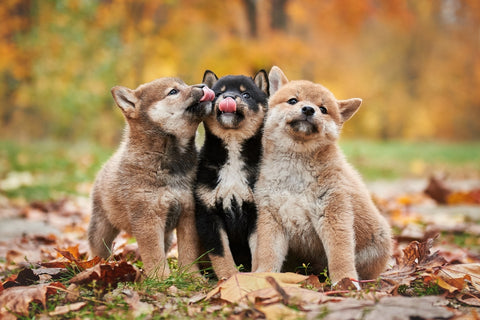
The Shiba Inu (Shiba dog) is one of the early breeds of Japanese hunting dogs we mentioned earlier in this post. This was around 7,000 B.C., and they were particularly adept at hunting birds and other small animals. Originally, there were three types of Shiba Inu, each named after its region of origin: Shinso, Mino, and San-in. But tragedy struck during World War II, leading to their near-eradication. Thankfully, the Shiba Inu had been declared a national treasure in 1936, before the start of the war. With the help of preservation societies and their breeding programs, the remaining dogs from all three lines were bred together, resulting in the Shiba Inu that’s so popular in modern times.
Shiba Inu is also Japan’s most popular dog breed in the US. The family of an American military personnel brought the first one to the US in 1954. By the end of 1992, it was already a recognized breed by the American Kennel Club (AKC).
Understanding the Shiba Inu: Temperament and Personality
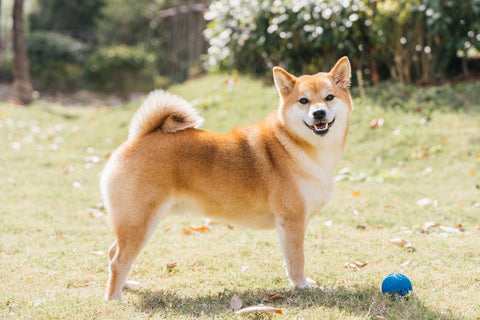
What makes the Shiba Inu puppy a unique companion? We asked dozens of Shiba dog owners in Japan and other countries. Their responses shed a bright light on the traits of the dog breed.
-
Endearing personality: The Shiba Inu is a playful and confident breed. They love to be involved in any exciting activity going on in the house, and can be very affectionate with their owners.
-
Vocal communicator: While most dogs will communicate with loud barks, the Shiba Inu like to adopt a different approach when expressing themselves. They may yodel, purr, or scream at a high pitch when experiencing certain emotions, such as loneliness or excitement.
-
Dominant and independent: Shiba inu owners have had to be mindful of the breed’s dominant personality. These dogs tend to be independent but will respond positively to an unaggressive display of your alpha status.
-
Very loyal: The dogs are loyal to their human families. They are also brave enough to try to ensure the safety of their owners in tense situations.
-
Hunting instinct: Remember that the original Shna Inu were hunters? Despite the years of crossbreeding and domestication, they still maintain some of their hunting drive. Owners claim that they have to put their dogs on leashes when around wildlife.
-
Love for food: They are small, active dogs who love food. To keep them from getting out of shape, one has to be careful not to overfeed them.
Other Native Japanese Dog Breeds
Three other Japanese dog breeds with an impressive global reputation are the Atika, Kishu Ken, and Japanese Terrier. We’ll take a brief look at each one, exploring their traits and highlighting their qualities.
The Akita Inu: A Larger Cousin
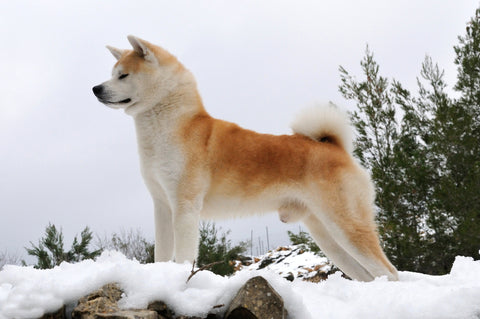
This native Japanese breed is revered for its large size and powerful frame. It shares a few personality traits with the Shiba Inu, but otherwise, they’re very different. The Akita Inu is reserved and comfortable being alone. Although they can learn to tolerate other dogs and pets, expect some initial aggressiveness.
The Akita is active and playful most of the time. Their near-endless energy reserves mean you need to find effective ways to train them on how to make productive use of their energy. Also, they have a vigilant personality that borders on possessiveness.
The Kishu Ken: A Hunter's Companion
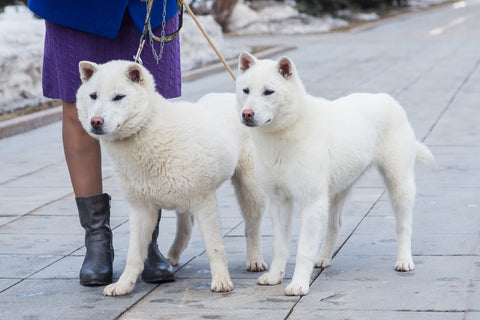
The Kishu Inu may not be as popular as the Shiba Inu, but they have endeared themselves to the hearts of a sizable portion of Japanese dog lovers around the world. The Kishu was also a hunting dog in ancient times, which manifests in their alert and spirited personalities. Hunters still have Kishu Ken as companions to this day.
As a family pet, the Japanese dog breed has an extremely affectionate personality. It loves attention and would stick to you like glue. It’s also friendly, even around strangers. Although the Kishu is a quiet dog and would only bark to alert owners, it can be active and playful when the mood strikes.
The Japanese Terrier: A Small but Spirited Friend
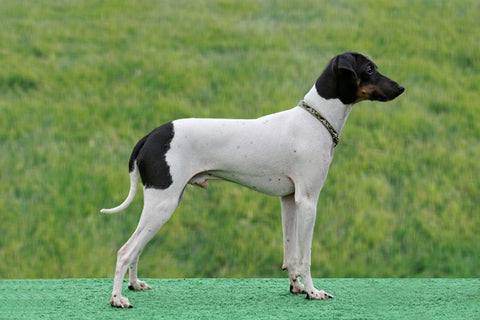
Introducing the lively and lovable Japanese Terrier. This breed has a lot of cousins from different regions of the world. However, the terrier-type canine was bred in Japan during the 17th century. You can recognize one easily, thanks to their small size, black head, and white body. Japanese Terriers have one of the most balanced personalities among other native breeds. They have just the perfect degree of liveliness, affection, and tolerance. Despite their size, they’re full of energy and great at hunting.
The Distinctive Features of Japanese Dog Breeds

People around the world love Japanese dog breeds because of their uniqueness. The following traits set them apart from other dog breeds globally.
-
Great at hunters: The first Japanese dogs were bred for hunting in mountainous regions of Japan. Even with the continuous domestication of these great hunters, their predatory instincts remain intact. Hence, most Japanese dog breeds are fantastic hunters of small animals.
-
Healthy and active: The majority of the dogs originating in Japan are healthy. However, some of them are predisposed to certain illnesses. For example, the Shiba Inu is predisposed to hypothyroidism, a hormonal disorder that causes hair loss, obesity, skin problems, and behavioral changes. A balanced diet, good hygiene, and regular activity can help mitigate some of the health risks. In fact, the Shiba Inu has a life expectancy of 15 years and six months!
-
Strong protective instincts: Most Japanese dog breeds are part-time watchdogs. They are very protective of what they consider their territory, leading to occasional altercations with other animals. Their alertness has its perks, especially when you and the family are outdoors.
-
They are affectionate and loyal: These dog breeds tend to show subtle affection for members of their family. Some native dogs, like the Japanese spitz breed, are friendly with strangers. Native breeds are also loyal and will stand by their owners, even in dangerous situations. The intense loyalty of Japanese dog breeds is a common trope in pop culture.
Caring for a Shiba Inu: Tips and Tricks
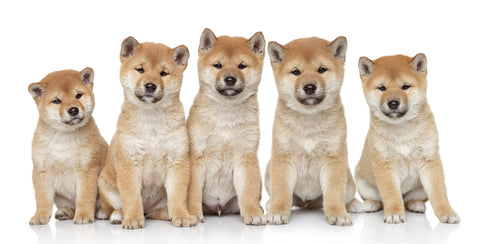
If you plan to adopt a Shiba Inu or already own one, we’ve got some practical advice to help you care for them effectively.
-
Use recall training: The Shiba Inu likes to hunt; hence, it chases random moving objects and small animals without notice. You’ll need to apply recall training early so that you can keep them in check whenever they run off. This will allow them to return to you upon simple commands like “come.”
-
Get them to exercise for roughly an hour per day: Your Shiba Inu has a lot of energy and needs to stay active to be happy and healthy. 40 to 60 minutes of exercise per day is enough. You can take long, off-lead walks with your dog, so long as the environment is safe and enclosed.
-
Exercise their minds too: Boredom is bad for the Shiba. They need to have their minds regularly stimulated or they could exhibit destructive behavior. Be sure to play suitable games with them each day. They are smart creatures with natural hunting instincts. Play games that involve solving problems and use food as a motivator. They love those!
-
Satisfy their need to always be involved: The Shiba inu doesn’t have to be the star of every show, but they certainly love being involved. Meet their need for attention by involving them in every household activity so they never feel left out.
-
Brush their hair weekly: The Shiba Inu has a thick double coat, which could get tangled easily. That is why we recommend that you brush it weekly with a comb and slicker brush. You should also increase the frequency of brushing during the spring and autumn, when they shed heavily.
The Cultural Impact of the Shiba Inu and Other Japanese Breeds
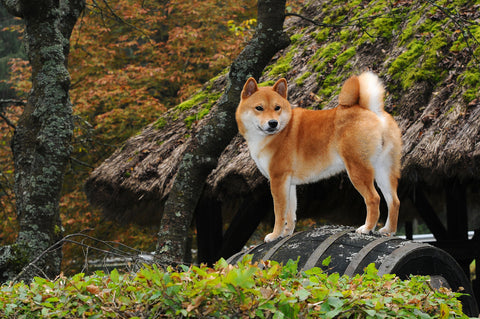
In Japan, native dog breeds are more than companions. They also represent Japanese heritage and values. According to Japanese symbolism, dogs represent honor, devotion, and diligence, which are core values in the country.
Further proof of the impact of dogs on the country’s culture is in the Japanese zodiac (Juunishi). The Inu is the sign of anyone born in the years 2006, 1982, 1970, 1958, 1946, 1934, 1922, or 1910. The belief is that such a person is honest, loyal, responsible, and helpful. That is an indication of how Japanese culture looks up to native dogs as the custodians of ideal human traits.
The Japanese dog breeds represent the country's cultural heritage. They are believed to hold the spirits of ancient honorable castes like the samurai. They also represent core traits of ancestors such as resilience, adaptability, ruggedness, and strength.
Shiba Inu in Popular Culture
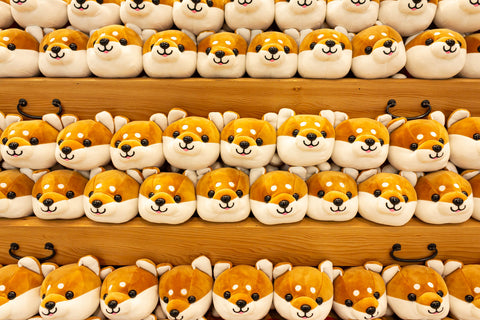
There have been several mentions and depictions of the Shiba Inus in domestic and foreign media, which has been partly responsible for the breed’s global popularity of late. Perhaps the most popular representation is in the 2013 “Doge” social media meme. It consists of the image of a Shiba Inu surrounded by written text in broken English. This meme was so popular that the first meme coin or cryptocurrency, Dogecoin, was invented based on it. Although created as a joke, Dogecoin is considered by many investors to be a success.
The 2007 film A Tale of Mari and Three Puppies was based on the true story of an actual Shiba Inu named Mari. During the earthquake disaster in Yamakoshi village, she showed great intelligence by carrying her three puppies to safety before returning to wake up her elderly owner in time for him to free himself from a fallen cabinet. Mari the Shiba Inu saved four lives that day and deserves a movie about her heroics.
Adopting a Shiba Inu Puppy: What You Need to Know
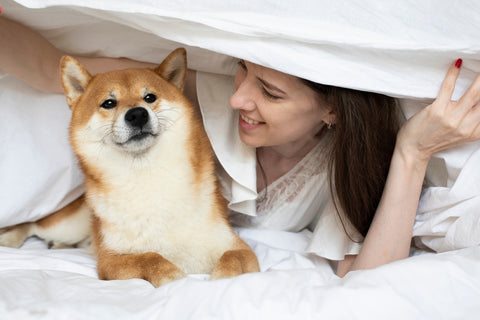
If you’re looking to welcome a Shiba Inu into your home, there are a few things you should know:
-
The Shiba Inu can be a handful because of their stubborn nature. They will fare better in the hands of an experienced dog owner and in households with older kids.
-
You need to watch for any signs of boredom. Engage them in exercise or games if you realize they may be bored.
-
Let the dog know who the alpha is early in your relationship. This will keep them from being too stubborn or running off without heeding your command.
-
Research and follow the dog breeding laws in your location. The last thing you want is to get in trouble for using illegal third-party breeders or sellers.
-
Be ready to train your Shiba Inu to tolerate other pets. They may react adversely to other pets in the home, like cats or birds. However, they can be trained to get along with them.
Conservation Efforts for Native Japanese Dog Breeds
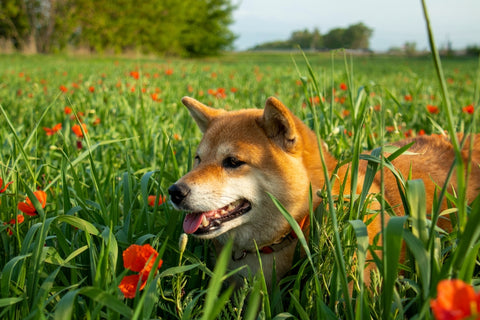
Native dog breeds in Japan have great cultural significance because they serve as a link to the values and lifestyle of ancient ancestors. It’s little wonder that the Japanese government has made them national treasures, with the aim of preserving them for future generations.
The Association for the Preservation of the Japanese Dog (Nihon Ken Hozonkai) was founded in 1928, and is responsible for maintaining the breed standard for six Japanese dog breeds: Shiba Inu, Atika Inu, Hokkaido, Kai Ken, Shikoku, and Kishu. The Japan Kennel Club is also a big advocate for the preservation of the ancient Japanese breed.
The Enduring Charm of the Shiba Inu and Its Kin
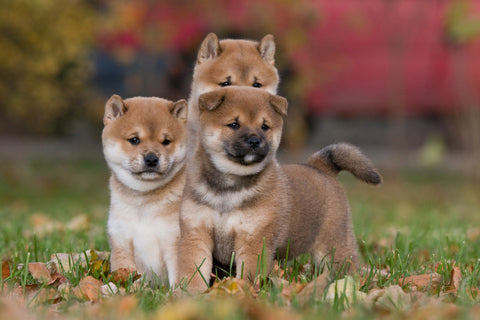
Lively, strong, loyal, and affectionate, the Shiba Inu and other Japanese dogs are in high demand. Japanese people in the diaspora are happy to adopt these dogs from their home country because of their cultural impact. No other dog breed can provide the same kind of connection to their ancestors. These dogs are also a joy to have around the house because of their playful and friendly nature. And if things ever get tough, you can count on the native Japanese dog to remain fiercely loyal.
Want to feel a little closer to Japan?
Begin your Japanese Snack journey with a Bokksu Snack Box today!
Author Bio


















